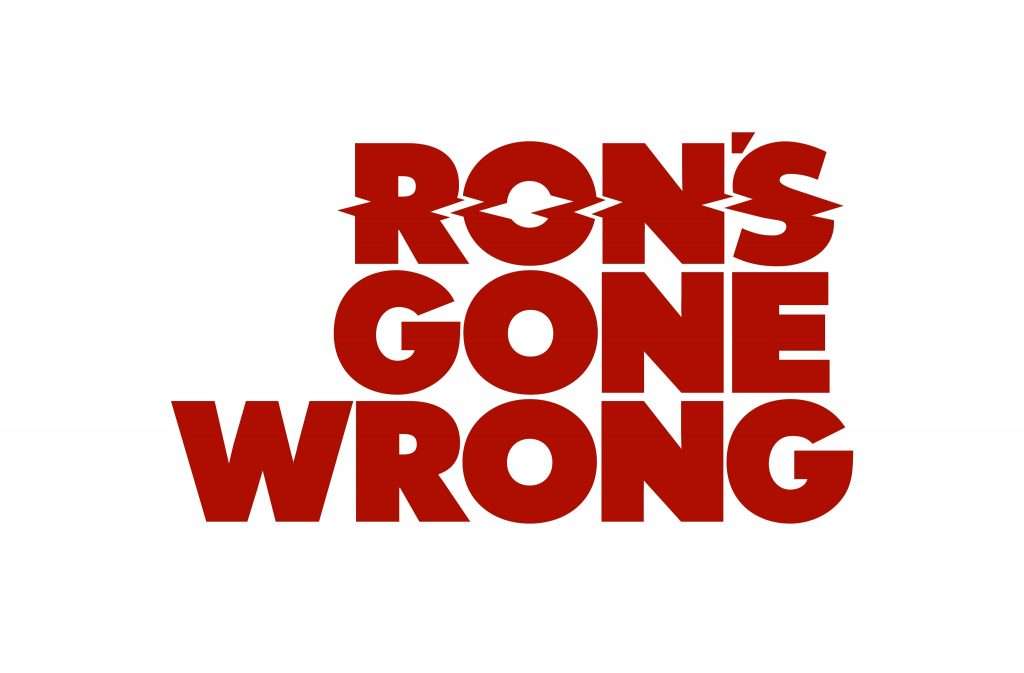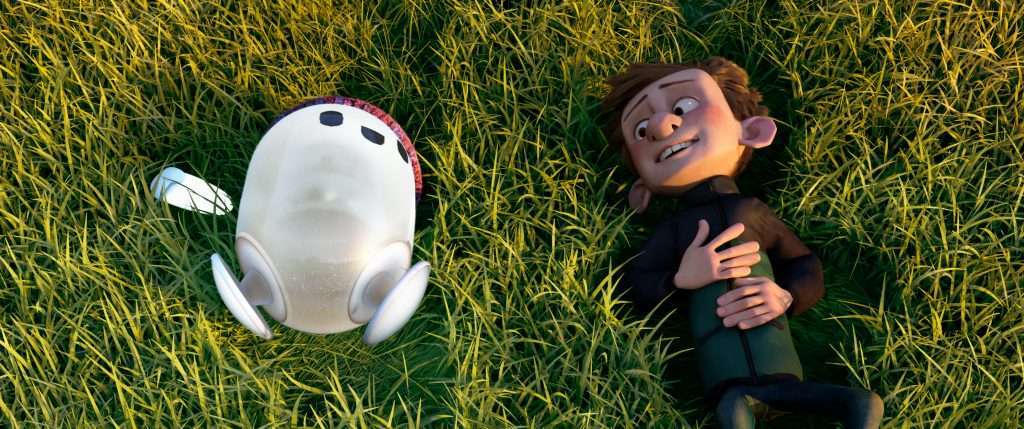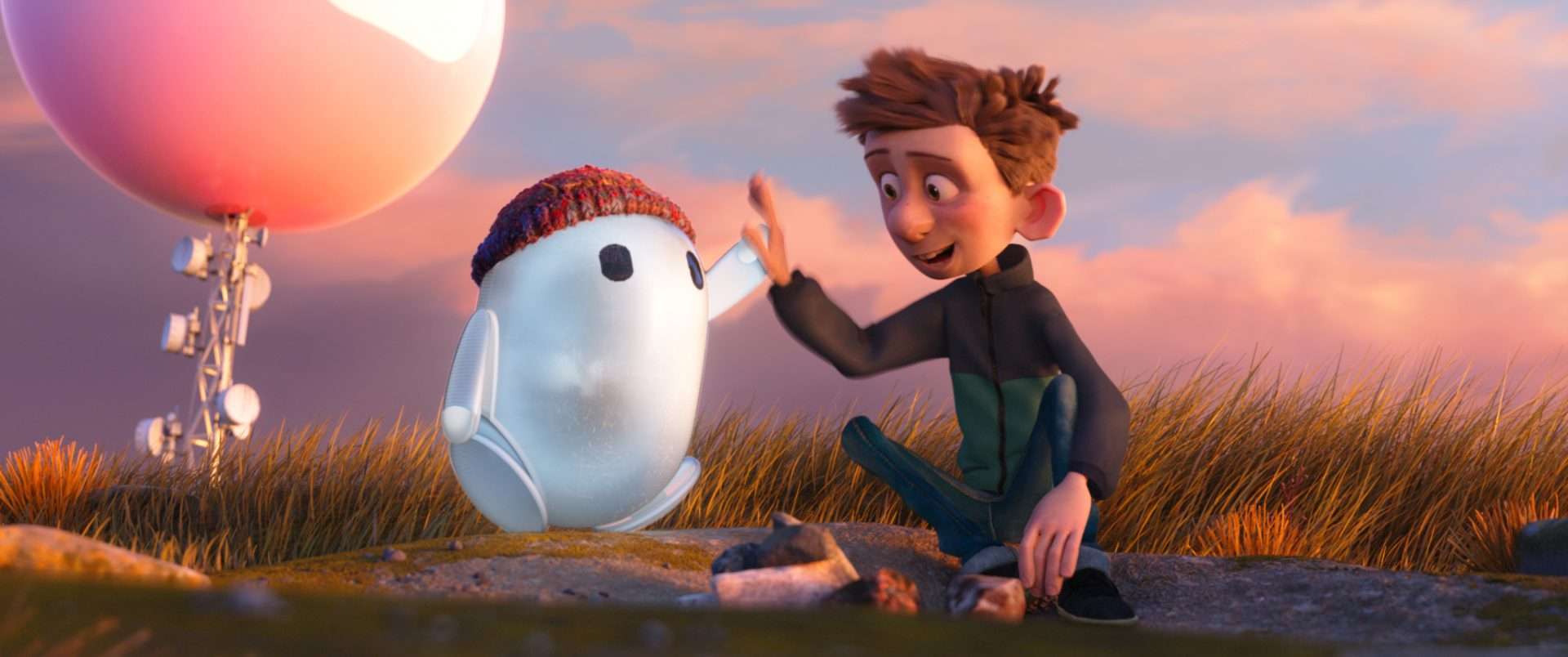This is going to be a slightly different column than usual, as it focuses entirely on one movie — and a kid’s one at that. That’s not because I’ve run out of tech opinions, but because Ron’s Gone Wrong has a lot to say about big tech, privacy, social media anxiety and addiction to technology. Like, way more than any animated flick should.
Or maybe that’s just my excuse for attending the world premiere without any children in tow. That’s not a flex, by the way — I didn’t realise it was the world premiere when I bought tickets like anybody else could as part of London’s BFI Film Festival.
But anyway, back to Ron, and how he went wrong enough to justify the title of the film.
Ron’s gone what, now?

In the film, a Silicon Valley company called Bubble has developed something called the B*Bot. In this alternative reality, Silicon Valley companies seem quite happy to openly target children, and the B*Bot is billed as a child’s “best friend out of the box”, which will learn their interests and help them make friends with others.
Like a real-world device that children of all ages are disturbingly addicted to, it will also record and share videos, play games and plug in to social media. In short, it’s a more useful version of Astro, with a company more open to targeting the pester power of the tween demographic on their wealthy parents.
This may sound familiar to fans of a certain Black Mirror episode. And while Ron’s Gone Wrong is distinctly more colourful, it does feel just as dark in some ways.
Bubble appears to be an amalgamation of the Facebooks and Apples of this world. Indeed, the film’s opening where a slightly nerdy tech CEO addresses a large auditorium with enormous promises of what the latest device will do felt wearily familiar as someone who’s had to cover enough of them. Only this time, the promise seems to be true: the B*Bot will revolutionise a child’s social life, albeit maybe not in the way they expect. Yes, they’ve got thousands of online friends, but perhaps at the expense of making real-life connections?
This is surprisingly not the case for the star of the film, a misfit child called Barney (Jack Dylan Grazer). His family can’t afford a B*Bot, but upon seeing how much he’s missing out by not having one, his father (Ed Helms) and grandmother (Olivia Colman) manage to get enough money together to buy one that literally fell off the back of a lorry — Ron (Zach Galifianakis).
As such, Ron’s a bit broken in an endearingly quirky way, having only the ‘A’ section of its onboard dictionary, and not understanding the societal rule that beating up children is frowned upon. Bubble naturally wants to take Ron to the tech glue factory to stamp out this non conformity and keep share prices buoyant, and Barney wants to prevent this from happening.
For tech or against?

That’s the premise, so is the movie pro- or anti-tech? Well, it can’t really decide.
Just like superficially happy influencers who broadcast every moment of their existence for complete strangers in return for likes and validatory comments, the children’s’ B*Bot happiness feels a bit forced. Certainly more forced than the contentment Barney feels with his broken, but more ultimately human, model.
In some respects, it feels the message is “wouldn’t today’s children be happier with a skipping rope, or trading pogs?” You get the feeling those poorer children, like Barney, would certainly welcome the less exclusionary life, rather than having to constantly peek over a paywall their parents simply can’t breach.
But without giving too much away about the ending, that’s not ultimately where it ends up. B*Bots remain as popular as ever, even if they end up taking a few bytes out of Ron’s code.
That feels quite an unsatisfying ending, considering the film takes a fair few unsubtle swings at the world of big tech. A whole host of references are made to B*Bots data harvesting in order to sell targeting advertisements like real-life companies we could name, and at one point all the bots’ cameras are hijacked for mass surveillance in order to track down Ron. Say what you like about Facebook, Amazon, Google and all, but none of them have steamrollered privacy quite that egregiously (yet.)
And while the closest the film comes to an arch villain, a Steve Jobs style executive called Andrew (Rob Delaney), is every big tech sceptic’s worst nightmare, Bubble CEO Marc (Justice Smith) is depicted throughout as a thoroughly good egg who just wants to help children make lasting connections through tech. It’s probably telling that, like Barney, his shirt label sticks out for the entire film too — they’re kindred spirits, just divided by age and income bracket.
Still, even he ultimately misunderstands what makes Ron likeable, at one point trying to help Barney by fixing his B*Bot. Fixing, in this case, is a factory reset which erases Ron’s personality. Even for this generally likeable character, there’s a disconnect between what humans want and what big tech believes it should offer.
Nibbling the hand that feeds
But then it would be mad for the film to be a hit piece on Silicon Valley. After all, without the advances of big tech, such charming animation wouldn’t be possible, especially for a plucky startup studio looking to take on the likes of Dreamworks and Pixar.
And even if it was happy to take that somewhat hypocritical swing, an ending where children just went back to riding bicycles and playing hopscotch would have felt hollow given the reality of the world around us. Phones and social media are here to stay, even if most companies claim under 13s are barred.
Thoughts on tech aside, is Ron’s Gone Wrong a good film? It’s not a bad first effort, but it feels like the studio has some way to go before it can rival Pixar’s art of instinctively making animated hits. It’s a bit flabby in the middle, with a story that stops and starts in often quite jarring ways. But it’s very likeable, often funny and with plenty of heart. Like Ron itself, it’s not perfect, but the world is ultimately more pleasant with it around.
Ron’s Gone Wrong will be in New Zealand cinemas on October 28. As a Disney product, it’ll likely also appear on Disney Plus at some point in the future, but no date is currently set.

